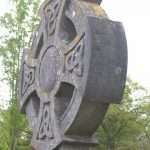On being an “evangelical”
A friend in Belfast, a man well-known as a preacher at missions, would smile and say, “What is the definition of an evangelical?”
A shake of the head or a shrug of the shoulders and he would answer, “An evangelical is someone who other evangelicals say is an evangelical”.
Being an evangelical seemed not to be about belief or identity, but about belonging to a group that had appropriated the name “evangelical” to itself.
It was confusing, in England of the late-1970s, an “evangelical” was someone who had made a personal commitment to Jesus as Lord and Saviour. Making such a commitment myself in 1980, I believed it reasonable to regard myself as among the ranks of the evangelicals. I read numerous books by evangelical writers and followed with interest the development of evangelical thinking.
One of the concerns expressed by evangelical writers in the early-1980s was the problem of “nominal Christians”, people who were Christian in name only. There was a desire for a thorough-going definition of what it meant to be a Christian, and a clear delineation between those who were “Christian”, in the evangelical sense of that word, and those who were not. The established church in England was regarded as the main source of nominal Christianity, it demanded no personal commitment of its members and baptised whoever might come along. Delving into history, there seemed a strong evangelical tradition that desired a separation of church and state and a reduction of the influence of the established church in spheres such as education.
As someone who had come to being a Christian from a hard Left-wing background, the evangelical desire for a church rooted in the ways of the Gospels, for a church built on people who had a simple faith in Jesus rather than one associated with powerful elites, was very attractive. The writings of Ronald Sider were about being the sort of Christian whom Jesus might have recognized and I would read Sider’s books, underlining sentences which pointed to a radical way of living out the Good News.
Moving to Northern Ireland in 1983 came as a shock. Evangelicals there were not the sort of people who read Sider’s “Rich Christians in an Age of Hunger” and “Living More Simply,” they were social conservatives, biblical literalists, people with little interest in the world other than when it was going to end. Being an evangelical meant accepting particular social and political views as well as a very narrow theological perspective, by all their definitions, I could not be an evangelical.
In the thirty years since, “evangelicalism”, as defined by those who defined themselves, has gone into a rapid retreat: church congregations have decline sharply, churches have closed. Wider society has ignored those who would once have locked children’s swings on a Sunday. Those calling themselves evangelicals have lost successive battles on social issues.
But why so much fear? Why the latest campaign against equality for gay and lesbian people? Why are evangelicals, why are the very people who in times past would have resented church interference in the affairs of the state, seeking to influence civil legislation? Imposing one’s beliefs on others does not create a Christian society, it creates the nominalism evangelicals have so disliked.
Evangelicals could render to Caesar the things that are Caesar’s and to God the things that are God’s; they could embrace a separation of church and state, so that those who are called “Christian” might really be Christian, might be people who have made a personal commitment and who have a personal faith; they could confidently serve the Kingdom among those whom Jesus would have regarded as friends; they could happily turn their backs on the rich and the powerful and seek to live out the Gospel in daily life. They could, it seems unlikely that they would.


Comments
On being an “evangelical” — No Comments
HTML tags allowed in your comment: <a href="" title=""> <abbr title=""> <acronym title=""> <b> <blockquote cite=""> <cite> <code> <del datetime=""> <em> <i> <q cite=""> <s> <strike> <strong>